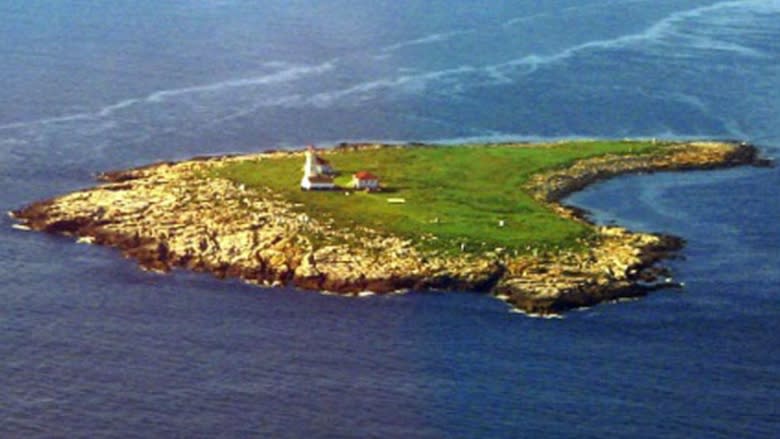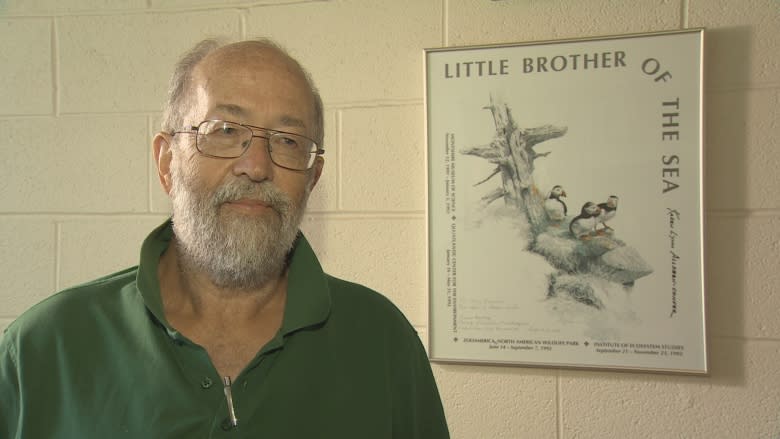Puffin chicks on Machias Seal Island starve to death
Only 12 per cent of puffin chicks born on Machias Seal Island this year made it to six weeks old.
That's the age when puffins emerge — or fledge — from burrows and normally about 60 per cent of them do so.
But this year, most born on the small island off Grand Manan island off New Brunswick died from starvation before hitting that milestone.
None likely to live long
The ones that did emerge, are underweight and still have down, which makes University of New Brunswick researcher Tony Diamond skeptical that they'll live to breed themselves.
"Normally those birds have no down on them and they're over 300 grams. The average weight this year was 190 grams," said Diamond.
"Essentially that cohort is toast."
Diamond's team of researchers observed adult puffins struggled to bring back food for their young ones, and they believe it has to do with warming water temperatures, causing fish to swim deeper and populations spreading out over longer seasons.
"They have to work harder to raise the young," he said, noting the changes in the types of food the birds were bringing back for their chicks, including smaller fish, and even worms.
Nesting in the Gulf of Maine
Machias Seal Island is in disputed territory between the United States and Canada, and the seven species of seabirds on the island are studied by scientists on both sides of the border.
About 5,500 puffin pairs breed there, more than all the neighbouring nesting grounds put together.
Another reason Diamond says the puffin population on the island seems to be more affected than other near by puffin colonies.
"They get their food for the chicks close to the colony, so there must be tremendous competition for food," he said.
"They can just deplete it."
But the neighbouring nesting sites aren't in the clear, he says. Puffins don't always nest on the island on which they were born.
That means the effects could trickle down to other puffin populations in the coming years.
Two bad years
Puffins can live longer than 30 years and lay an egg almost every year, so Diamond says this season isn't necessarily an indicator of future puffin populations.
"A pair of puffins over their lifetime have to produce two viable puffins," he said.
"So not producing young that survive in one year is not a big deal."
But looking at the big picture does indicate declining trends.
With almost equally bad survival rates on Machias Seal Island in 2013, when only 15 per cent of chicks fledged — and smaller, lighter chicks overall — he says these numbers could prove detrimental to the species.



